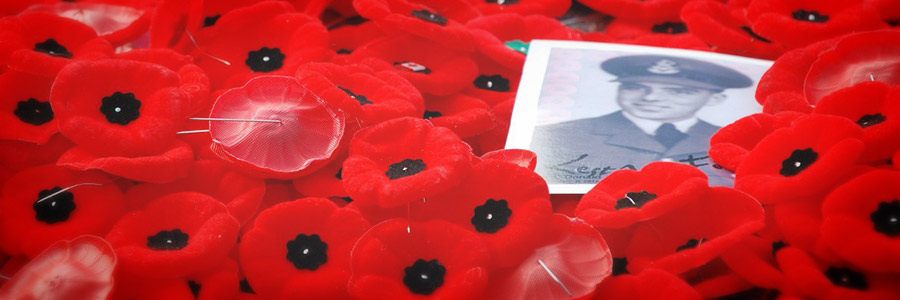You are reading the Original Version (CLB5+) Read Simple Version (CLB3-4) November 11 is Remembrance Day in Canada. It is also called Armistice Day. Remembrance Day commemorates the service of the armed forces – soldiers, airmen and sailors – who fought and died in armed conflicts during the first World War. It is also a chance to honour people who continue to serve in war, military conflict, and international peacekeeping missions. In short, we celebrate Remembrance Day to acknowledge the important role of those who risk life and limb to uphold world peace. We hold it on this date because November 11, 1918 at 11 am (the 11th hour of the 11th day of the 11th month) is the moment that hostilities stopped, officially ending World War I. Remembrance Day is a federal statutory holiday. Although it is not a statutory holiday in Manitoba, the province outlines restrictions for operating business and special requirements for paying employees who work on November 11. Schools, civic offices, and many businesses are closed. So are public libraries, most public leisure and recreation centres, as well as banks and credit unions. However, most grocery stores, shopping malls, museums and galleries are open starting at 1 p.m. Check online before you go. All government buildings fly the Canadian flag on this special day. At exactly 11 a.m., most people observe a two minute silence. Some people gather in memorial parks, community halls, workplaces, schools, homes, and parks to observe this silence to honour fallen soldiers. There is a National Remembrance Day Ceremony held every year at the National War Memorial in Ottawa. The ceremony gathers veterans from all wars and peace support operations, dignitaries, the Canadian Armed Forces, the RCMP, members of the Diplomatic Corps and youth representatives. Everyone can take part in the ceremony by attending or tuning in to the television broadcast. The ceremony in Ottawa has a grand Veterans’ Parade and a 21-gun salute, among other activities. Prior to Remembrance Day (usually the last Friday of October), you will notice that many people start wearing a red flower on their clothes. This is the poppy flower. It symbolizes respect and support for the Canadian troops. For a small donation, you can get these poppy pins from members of the Royal Canadian Legion. They are usually found in public places or in commercial establishments. All donations go to the Legion’s Poppy Fund which supports serving and retired veterans and their families. This was inspired by the poem “In Flanders Fields” written by Lieutenant Colonel John McCrae, a Canadian doctor. In the poem, he paints a poignant picture of bright red poppies growing in the middle of reminders of death and loss during the war. Poppies have since become a symbol of respect for those who served and died for their country in Canada, Great Britain, the nations of Commonwealth, and the United States. “In Flanders Fields” by John McCrae (recited by Leonard Cohen) Please login to tell us what you think.Skip to:
What are we remembering?
Is it a holiday?
How do Canadians celebrate it?
Why poppies?
from Legion Magazine
Article updated October 7, 2024.
Sources: Statutory Holidays Canada; The Canadian War Museum; The Royal Canadian Legion; and The Story of the Poppy (The Royal British Legion).Retrieved October 24, 2016.Quiz
We'd love to hear from you!



